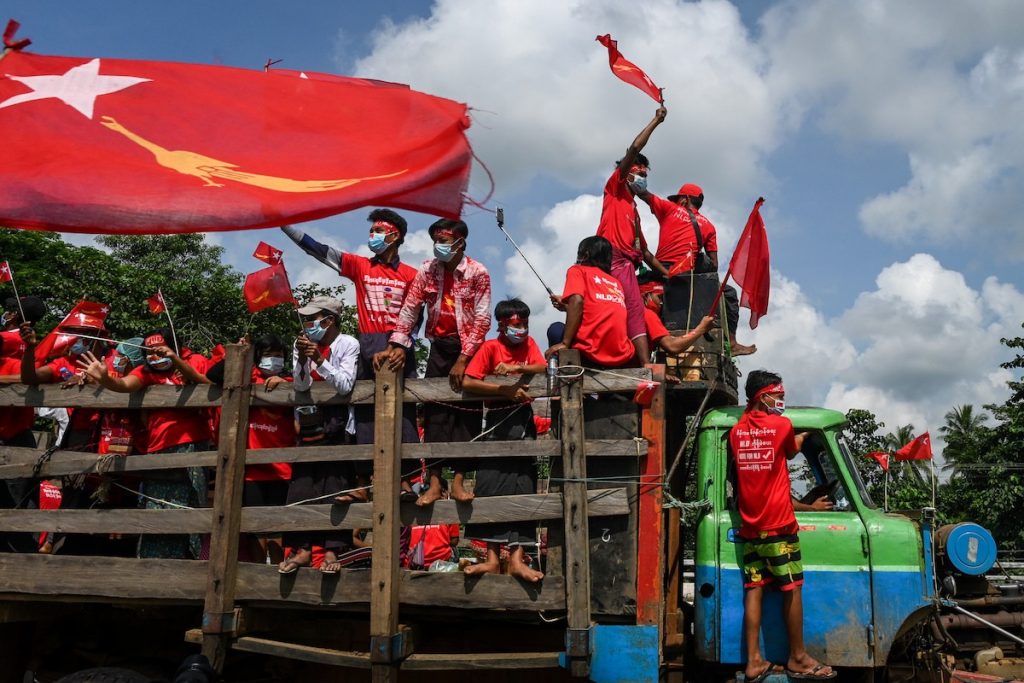
Myanmar’s Union Election Commission has made critical decisions without meaningful transparency that will affect the Nov. 8 election in many ethnic minority areas, an international human rights group has said.
In a statement, Human Rights Watch (HRW) said the decision-making process of the commission, which canceled voting in 15 townships and parts of 42 others, was not public and did not involve meaningful consultation with political parties, candidates, or local organizations.
On Oct. 16, the election commission, citing security concerns, announced whole or partial cancellations in constituencies in Kachin, Karen, Mon, Rakhine, and Shan States, and the Bago Region. On Oct. 27, the commission also added 94 village tracts in Paletwa township, Chin State, to the list of areas where voting is suspended. As a result, over 1.5 million people will not be able to exercise their right to vote, HRW said.
“The Union Election Commission is making decisions affecting people’s right to choose their representatives without an iota of transparency,” said Phil Robertson, HRW deputy Asia director. “Myanmar’s election commission needs to fully explain the basis for its decisions on each of the affected townships, which affect the voting rights of 1.5 million largely ethnic minority people.”
HRW stated that on Oct. 20, the election commission said during a news conference in Naypyitaw, the capital, that its decision to cancel voting in parts of the country was based on recommendations by the government, the Defense and Home Affairs Ministries, the military, and the police. However, the commission did not provide information on the criteria it used, HRW said.
The rights group said that the Union Election Commission has not offered an alternative date or means to cast ballots.

HRW pointed out that under Myanmar’s election rules, by-elections may only take place after the first year of a government’s term. Since the government elected in November will only take office at the start of April 2021, this means affected seats in parliament will remain empty until at least 2022. Elections must be held for those canceled election seats no later than the start of the government’s final year in office but only if the commission deems it safe.
While armed conflict has destabilized many parts of Rakhine State, the commission’s inclusion of areas where conflict is limited, including significant parts of Shan, Kachin, Karen, and Mon States, and the Bago Region, raises concerns about the commission’s criteria for canceling elections, HRW said. At the same time, there are concerns about elections going forward in some areas that have a high level of conflict or that have experienced security issues, the rights group added.
“While parts of Myanmar are facing serious security problems, the authorities should do all they can so that eligible voters can cast their ballots,” Robertson said. “The Union Election Commission should consult with political parties and local groups in affected areas to validate the security concerns and consider options that would safeguard people’s right to vote.”
Source: Licas Philippines
0 Comments